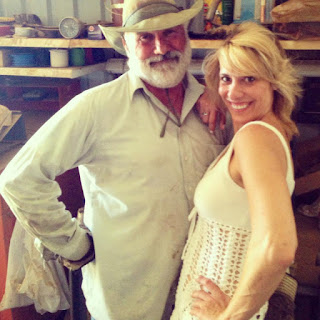Military Books #5, 6, 7 & 8 -- WWI all the Way!
These WWI books were fascinating to read -- I can't help but wonder if I am into this period more because of Dowton Abby? If so, that is good because I am glad that I took the time to explore these. I have read many Revolutionary, Civil War, and World War II books (which is why I am not reviewing any of them here), but have for the most part ignored WWI. Even if you aren't into Military but want more on Dowton Abby, the following books would make a good choice for you.
Military Book #5
 All Quiet on the Western Front by Erich Maria Remarque
All Quiet on the Western Front by Erich Maria Remarque
My rating: 5 of 5 stars
Everyone says this is THE military book of military books. Now that I have read it, I understand why. It is profound writing about the brutality of WWI and the disenchantment and hopelessness of the young men of that generation. I marked many favorite passages because the writing seemed so real, so truthful, and helped me, as a very much non soldier civilian, understand somewhat the despair of these men. This writer did not hold back, which is why this book is so loved; it is the reason this book is a classic.
Here is one quote at the beginning of the book that reached deep, about men and boys:
"For us lads of eighteen they ought to have been mediators and guides to the word of maturity, the world of work, of duty, of culture, of progress -- to the future. We often made fun of them and played jokes on them, but in our hearts we trusted them. The idea of authority, which they represented, was associated in our minds with a greater insight and a more humane wisdom. But the first death we saw shattered this belief. We had to recognize that our generation was more to be trusted than theirs. They surpassed us only in phrases and in cleverness. The first bombardment showed us our mistake, and under it the world as they had taught it to us broke in pieces."
And soon thereafter, the phrase that borrows from a famous poem of the time (reviewed below):
"Kantorek would say that we stood on the threshold of life. And so it would seem. We had as yet taken no root. The war swept us away. For the others, the older men, it is but an interruption. They are able to think beyond it. We however, have been gripped by it and do not know what the end may be. We know only that in some strange and melancholy way we have become a waste land. All the same, we are not often sad."
Military Book #6
 The Wasteland & Four Quartets by Paul Scofield (written by T. S. Eliot)
The Wasteland & Four Quartets by Paul Scofield (written by T. S. Eliot)
My rating: 5 of 5 stars
I loved listening to this, but The Waste Land is better digested in writing (and with my college anthology of modern poetry). So I pulled out my anthology and refreshed my memory - it is so full of literary references that I think all but Harold Bloom would have to have the explanations. I absolutely loved it. What surprised me in the listening was how beautiful the Four Quartets sounded when read aloud. It reminded me of Ecclesiastes, which is clearly a heavy influence on Eliot, and is one of the original works which sounds out man's life questions -- like modern poetry! But back to Eliot, If you want to understand modern poetry, I really think these are among the most important works in the syllabus, and when read in conjunction with other WW I literature (or even other military books), they really come alive and exude the pain of those soldiers.
Eliot called The Waste Land a "rhythmical grumbling" and said: "To me it was only relief of a personal and wholly insignificant grouse against life. . . I wasn't even bothering whether I understood what I was saying."
It is just fine that Eliot doesn't understand (and we don't really understand), because we readers/listeners GET IT, and even when we don't it doesn't matter because its such outrageously beautiful grousing. Here is the first famous line:
Dull roots with spring rain. . . ."
Military Book #7
 War Horse by Nick Stafford
War Horse by Nick Stafford
My rating: 4 of 5 stars
Sweet sweet story about a horse in WWI. I didn't get to catch the play and didn't hear great things about the movie, but this was an easy way to hear the story. Loved it! This story is not as heavy as my other two favorites above, but is real enough and yet good for animal lovers. If you are an animal lover, you know what I mean, but I don't want to give too much away.
Military Book #8

 Birdsong: A Novel of Love and War by Sebastian Faulks
Birdsong: A Novel of Love and War by Sebastian Faulks
My rating: 4 of 5 stars (3.5?)
This book is almost three books -- a love story, a war story, a family -- ancestor search -- story, but when viewed as a whole, it is a story about a man who experienced love and the devastation of war. I read the first part of this book years ago on a trip, and then lost the book! I had picked it up in the airport on a lark, and wasn't paying any attention to title or anything but story, so I never found it again until just recently due to Goodreads. Glad I finally figured it out, because I really did want to know the story.
What impressed me most was the detail on the underground warfare in WWI. I don't think I have ever even read anything about this, so it was new and fascinating. Also, the writing is good. Here is a part of the publisher blurb:
"As the young Englishman Stephen Wraysford passes through a tempestuous love affair with Isabelle Azaire in France and enters the dark, surreal world beneath the trenches of No Man's Land, Sebastian Faulks creates a world of fiction that is as tragic as A Farewell to Arms and as sensuous as The English Patient."
Military Book #5
My rating: 5 of 5 stars
Everyone says this is THE military book of military books. Now that I have read it, I understand why. It is profound writing about the brutality of WWI and the disenchantment and hopelessness of the young men of that generation. I marked many favorite passages because the writing seemed so real, so truthful, and helped me, as a very much non soldier civilian, understand somewhat the despair of these men. This writer did not hold back, which is why this book is so loved; it is the reason this book is a classic.
Here is one quote at the beginning of the book that reached deep, about men and boys:
"For us lads of eighteen they ought to have been mediators and guides to the word of maturity, the world of work, of duty, of culture, of progress -- to the future. We often made fun of them and played jokes on them, but in our hearts we trusted them. The idea of authority, which they represented, was associated in our minds with a greater insight and a more humane wisdom. But the first death we saw shattered this belief. We had to recognize that our generation was more to be trusted than theirs. They surpassed us only in phrases and in cleverness. The first bombardment showed us our mistake, and under it the world as they had taught it to us broke in pieces."
And soon thereafter, the phrase that borrows from a famous poem of the time (reviewed below):
"Kantorek would say that we stood on the threshold of life. And so it would seem. We had as yet taken no root. The war swept us away. For the others, the older men, it is but an interruption. They are able to think beyond it. We however, have been gripped by it and do not know what the end may be. We know only that in some strange and melancholy way we have become a waste land. All the same, we are not often sad."
Military Book #6
My rating: 5 of 5 stars
I loved listening to this, but The Waste Land is better digested in writing (and with my college anthology of modern poetry). So I pulled out my anthology and refreshed my memory - it is so full of literary references that I think all but Harold Bloom would have to have the explanations. I absolutely loved it. What surprised me in the listening was how beautiful the Four Quartets sounded when read aloud. It reminded me of Ecclesiastes, which is clearly a heavy influence on Eliot, and is one of the original works which sounds out man's life questions -- like modern poetry! But back to Eliot, If you want to understand modern poetry, I really think these are among the most important works in the syllabus, and when read in conjunction with other WW I literature (or even other military books), they really come alive and exude the pain of those soldiers.
Eliot called The Waste Land a "rhythmical grumbling" and said: "To me it was only relief of a personal and wholly insignificant grouse against life. . . I wasn't even bothering whether I understood what I was saying."
It is just fine that Eliot doesn't understand (and we don't really understand), because we readers/listeners GET IT, and even when we don't it doesn't matter because its such outrageously beautiful grousing. Here is the first famous line:
"April is the cruelest month, breeding
Lilacs out of the dead land, mixing
Memory and desire, stirring
Dull roots with spring rain. . . ."
Military Book #7
My rating: 4 of 5 stars
Sweet sweet story about a horse in WWI. I didn't get to catch the play and didn't hear great things about the movie, but this was an easy way to hear the story. Loved it! This story is not as heavy as my other two favorites above, but is real enough and yet good for animal lovers. If you are an animal lover, you know what I mean, but I don't want to give too much away.
Military Book #8
My rating: 4 of 5 stars (3.5?)
This book is almost three books -- a love story, a war story, a family -- ancestor search -- story, but when viewed as a whole, it is a story about a man who experienced love and the devastation of war. I read the first part of this book years ago on a trip, and then lost the book! I had picked it up in the airport on a lark, and wasn't paying any attention to title or anything but story, so I never found it again until just recently due to Goodreads. Glad I finally figured it out, because I really did want to know the story.
What impressed me most was the detail on the underground warfare in WWI. I don't think I have ever even read anything about this, so it was new and fascinating. Also, the writing is good. Here is a part of the publisher blurb:
"As the young Englishman Stephen Wraysford passes through a tempestuous love affair with Isabelle Azaire in France and enters the dark, surreal world beneath the trenches of No Man's Land, Sebastian Faulks creates a world of fiction that is as tragic as A Farewell to Arms and as sensuous as The English Patient."










Comments